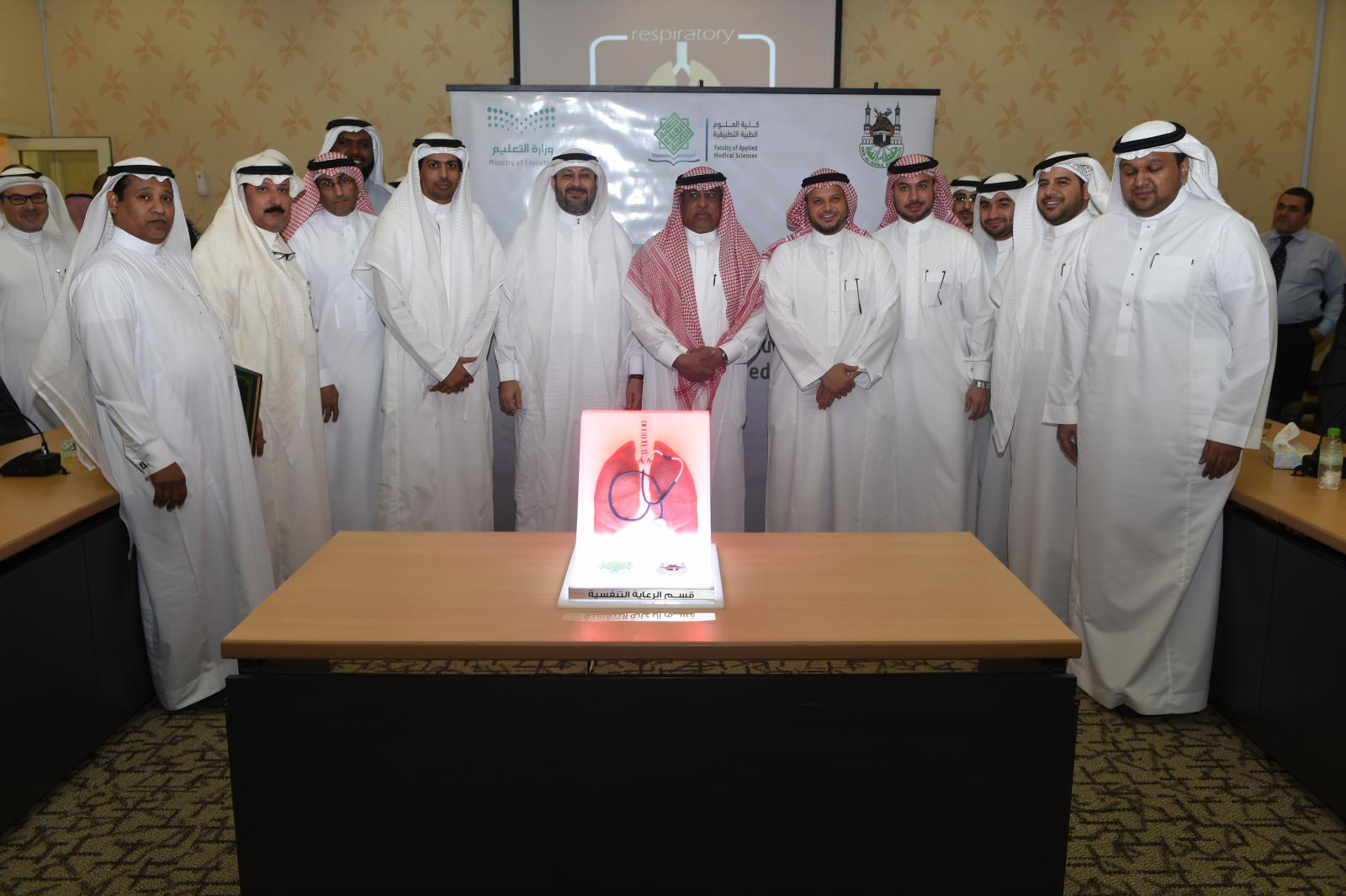
The President of UQU, Dr. Bakri Bin Maatouq Asas, opened the Respiratory Treatment Department of the Faculty of Applied Medical Sciences, Abediya Campus, on Tuesday, 14 Rajab 1438H, in the presence of the University Vice-President for Educational Affairs, Dr. Abdulaziz bin Rashad Srouji, the dean of the college Dr. Ahmed bin Mohammed Al-Achi, director of the College Administration, Prof. Talal bin Mohammed al-Husseini, and a number of deans of colleges, vice-deans and faculty members.
The speech ceremony began with the recital of holy verses from the Quran, after which the dean of the College, Dr. Ahmed Al-Achi, delivered a speech in which he stated that Umm al-Qura University, represented in the Faculty of Medical Sciences, witnessed the opening of the Respiratory Care Program-one of the most important requirements of the health sector and the supporting medical disciplines--which will contribute to the improvement of health services in the Kingdom, pointing out that in line with the directives of the government--supported by God--UQU University has achieved one of the most important objectives of KSA's Vision 2030, to meet the requirements of development and the needs of the labor market, by increasing the number of hospital supporting medical personnel; stating that the respiratory care program will be one of the joint cooperation between the Ministry of Education and the Ministry of Health, he added.
He noted that the Faculty of Applied Medical Sciences and the technical and human capabilities it contains is a success story in a series of success stories of higher education in KSA, appreciating the support and guidance of His Excellency Dr. Bakri Bin Maatouq Asas, and the efforts of the university deanships, represented in UQU Deanship for Educational Affairs, supporting deanships and various departments, praising the tireless work of the college's vice-deans, head of departments, faculty members and the college's administrative body.
In the same regard, the head of the Respiratory Therapy Department, Dr. Bassem Al-Sharif, gave a speech explaining that the respiratory care program is considered a modern medical program; focused on treating patients in intensive care, emergencies and patients with artificial respiratory devices. It is also focused on screening and rehabilitation of patients with acute or chronic respiratory illnesses, either by direct or indirect follow up from competent physicians, noting that UQU is one of the first universities to embrace this specialization in the Middle East. He pointed out that the practice of respiratory care in The kingdom began more than 25 years ago, and it began with training programs in hospitals, and over time and recognition of the importance of this modern medical specialization, universities and educational institutions have begun to create diploma programs, which have evolved into B.Sc. programs that teach respiratory care.
He said that as of the next academic year 1438/1439, the first class of the respiratory treatment program students will be received, and admission will be limited to 10 female students in the first year, so that the number will increase in the following years, noting that an experienced and highly qualified teaching staff will be attracted to teach this program.
Later, UQU President Dr. Bakri bin Maatouq Asas stated that he believes in the role of the UQU education in this discipline and in view of the need for respiratory care workers in the labour market, this program was established to be a tributary of knowledge and development in the Kingdom of Saudi Arabia, noting that this program will play an active role in contributing to the realization of the KSA's Vision 2030, which will remain the main and most prominent goal that we are striving to achieve, noting the strengthening of efforts in aligning the educational system's outputs with the needs of the labor market, considering that the medical sector is the backbone of development. He asserted that the respiratory treatment department will be joining the university's programs offered to the community, numbering about 600 through various university faculties.